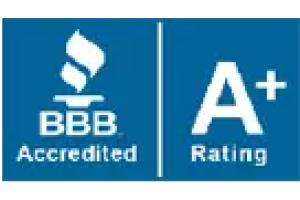Trial Lawyers
Trademark Infringement Litigation
Our Chicago Trademark Infringement attorneys handle cases involving basic trademark infringement, as well as lawsuits for:
- Trade dress infringement
- Online trademark infringement, including cases involving domain names, cybersquatting and unfair use of trademarks in pay-per-click advertising
- Misappropriation of corporate names and images in branding disputes
- Unfair competition
- False advertising
- Violations of rights of celebrity
Both federal and state law protect Trademarks. Under The Lanham Act (also known as the Trademark Act of 1946) 15 U.S.C. §§ 1051 et seq, a federal law governing trademark infringement cases, our attorneys may seek equitable relief in addition to monetary damage for trademark infringement, trademark dilution, and false advertising.
To succeed on an infringement or dilution in a trademark infringement claims under the Lanham Act, the infringing mark must be used:
- through any counterfeit, reproduction, copy, or substantially similar imitation of a registered mark,
- in connection with the sale, distribution, or advertising of goods or services,
- in commerce, and
- in cases where such use is likely to confuse, cause mistakes, or deceive the consumer that they are buying a product associated with the trademark.
To succeed on a false advertising claim, a plaintiff must establish that:
- the advertisements were false or misleading;
- the advertisements deceived, could have deceived, consumers;
- the deceptive conduct had a material effect on purchasing decisions;
- the misrepresented product or service involved interstate commerce; and
- the plaintiff has been—or is likely to be—injured as a result of the false advertising
Damages for a false advertising claim include actual damages, lost profits, disgorgement of the defendant’s profits, injunctive relief, corrective advertising, and attorney’s fees.
Trademark Infringement Damages
Section 1117(a) of the Lanham Act provides for the recovery of damages as follows:
When a violation of any right of the registrant of a mark registered in the Patent and Trademark Office, a violation under section 1125(a) or (d) of this title, or a willful violation under section 1125(c) of this title, shall have been established in any civil action arising under this chapter, the plaintiff shall be entitled, subject to the provisions of sections 1111 and 1114 of this title, and subject to the principles of equity, to recover (1) defendant’s profits, (2) any damages sustained by the plaintiff, and (3) the costs of the action. The court shall assess such profits and damages or cause the same to be assessed under its direction. In assessing profits the plaintiff shall be required to prove defendant’s sales only; defendant must prove all elements of costs or deduction claimed. In assessing damages, the court may enter judgment, according to the circumstances of the case, for any sum above the amount found as actual damages, not exceeding three times such amount. If the court shall find that the amount of the recovery based on profits is either inadequate or excessive, the court may in its discretion enter judgment for such sum as the court shall find to be just, according to the circumstances of the case. Such sum in either of the above circumstances shall constitute compensation and not a penalty. The court in exceptional cases may award reasonable attorney fees to the prevailing party. 15 U.S.C. § 1117(a).
Our Trademark Attorneys may recover the following categories of monetary damages under the Lanham Act: (1) disgorgement of the profits; (2) actual damages, (3) reasonable royalty, (4) attorneys’ fees in exceptional cases, and (5) costs. See 15 U.S.C. § 1117(a).
Disgorgement of Profits as Measure of Trademark Infringement Damages
The Lanham Act allows for damages measured by disgorgement of the infringer’s profits. Damages are awarded based on (1) disgorgement of unjustly obtained profits; or (2) using the infringer’s profits as a measure of the plaintiff’s own loss (proxy theory).
Actual Damages of Trademark Infringement
Under Section 1117(a), plaintiff’s can recover actual damages. 15 U.S.C. §1117(a). A plaintiff must prove actual confusion that resulted in economic loss. The evidence of damages can be presented with proof of diverted sales or consumer survey evidence. Economic loss must be proven through lost profits or loss of goodwill.
Reasonable Royalty as Trademark Infringement Damages
A “reasonable royalty,” is a measure of compensation for past infringement based on the reasonable value of a trademark license the infringer should have paid. When authorized, courts typically calculate a reasonable royalty based on the Georgia-Pacific factors: (1) nature and scope of a licensee’s use; (2) special value to the infringer; (3) the amount a reasonable licensee would be willing to pay; (4) profitability of infringing use; (5) the lack of viable alternatives to calculating damages; and (5) expert opinion. 318 F. Supp. 1116, 1120 (S.D.N.Y. 1970).
Attorneys’ Fees, Costs, and Exceptional Cases
The Lanham Act only allows attorneys’ fees in “exceptional cases.” 15 U.S.C. § 1117(a), but does not define “exceptional case.” More often than not a winning plaintiff may recover attorneys’ fees when infringement is proven malicious, fraudulent, deliberate, or willful.
Prevailing defendants have been allowed to recover attorneys’ fees in instances in which a plaintiff’s conduct lacks merit, demonstrates elements of an abuse of process, or unnecessarily increases the costs of defending the lawsuit.
Loftus & Eisenberg represents parties on both sides of trademark disputes. Our attorneys have over fifty years’ experience litigating trademark disputes in federal courts nationwide.
















